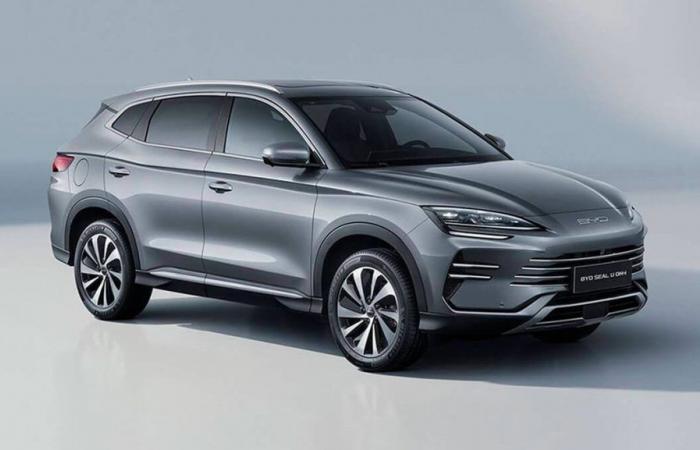BYD Its main objective is to Europe not only become a very serious rival for Tesla in the sale of 100% electric cars but also gradually gain ground in the vast majority of European markets with hybrid models.
It is no coincidence then that one of its great novelties in this sense has been the launch of the plug-in hybrid version of its BYD Seal Uthe version called DM-i.
At the Chinese manufacturer we are aware that, no matter how much electric cars are gaining weight, there are still many drivers who have not quite decided when it comes to taking the definitive step, hence having a model with this type of engine allows reach a much larger audience.
The BYD Seal U DM-i has more than 1,000 km of autonomy
In the case of this model, one of its selling points is that its entry-level version comes very well equipped in every sense, especially at a mechanical level. It has an engine in which the combined power of the electrical mechanics and the fuel mechanics ends up being 218 horsepower.
BYD Seal U DM-i
Beyond the fact that it has a battery that allows it to have a 80 km electric rangea more than interesting figure, the mechanics of the set are supposed to be very efficient, managing to have more than 1000 km of autonomy with the battery charged to 100% with a full tank.
On the other hand, it should also be taken into account that one of its great selling points is its price, which remains below the 30,000 euros counting on the brand’s promotions as well as the aid from the government plan, an amount that makes it, as it is one of the best models in terms of technology, a truly recommended option in Spain.






